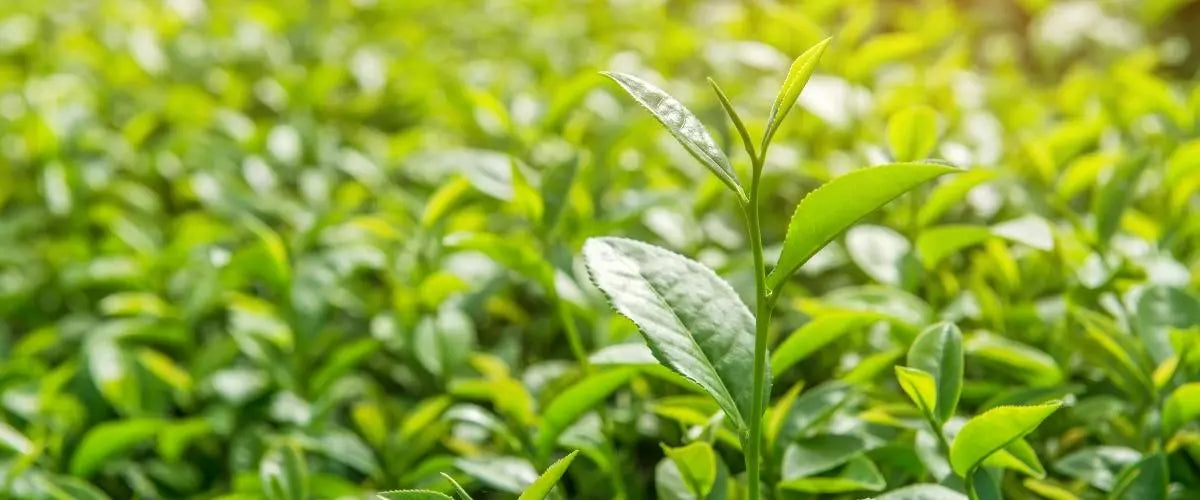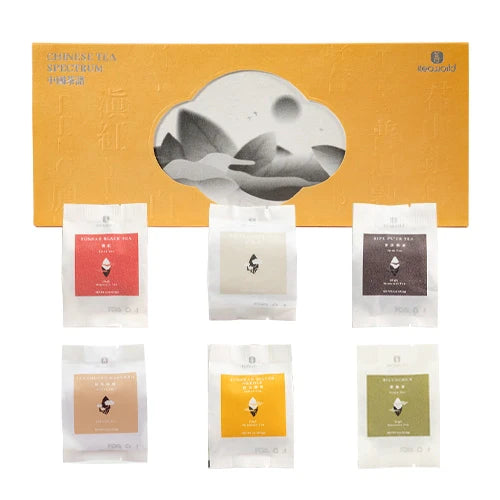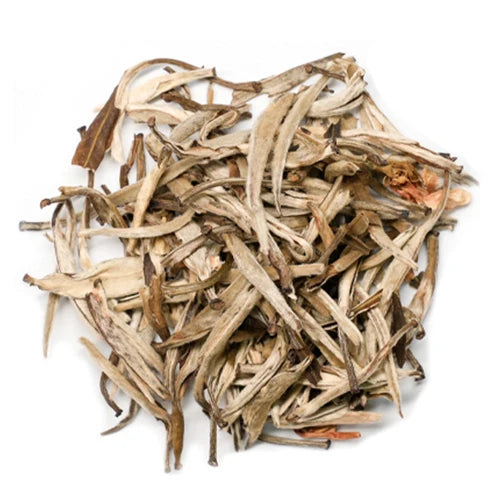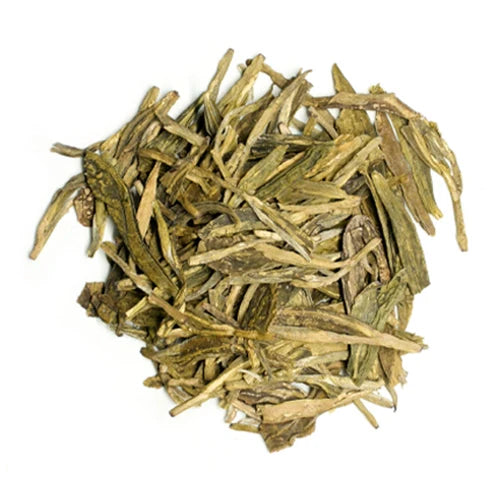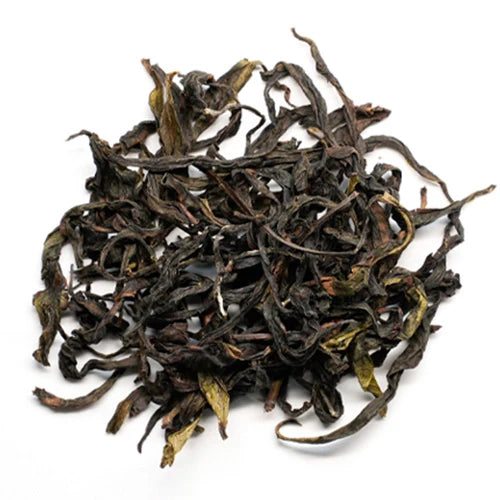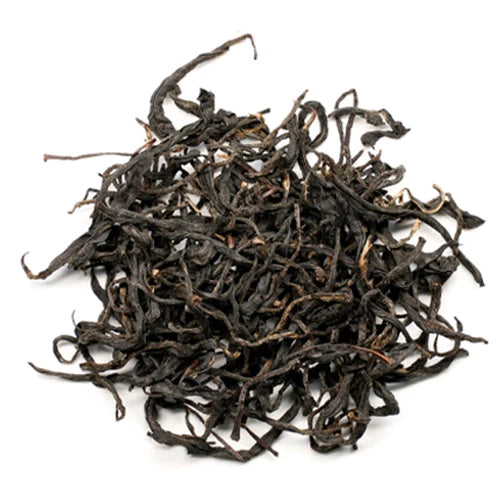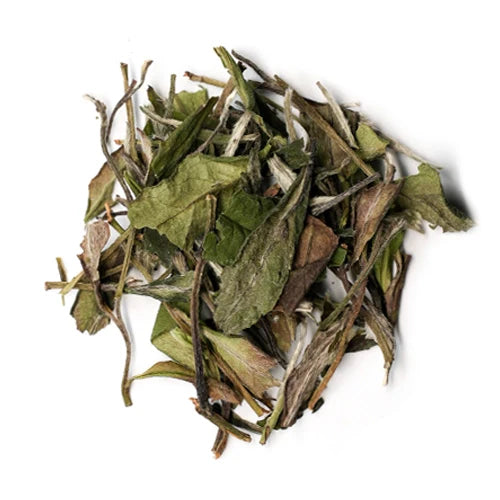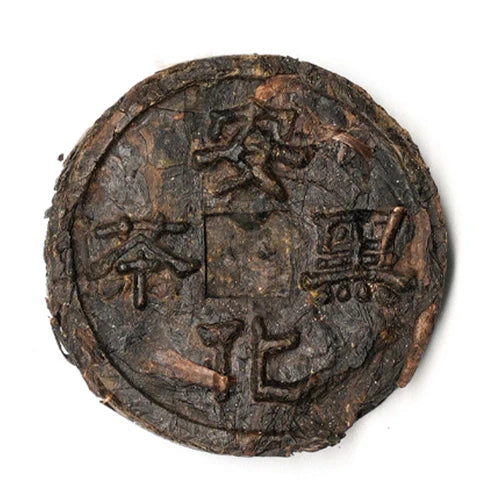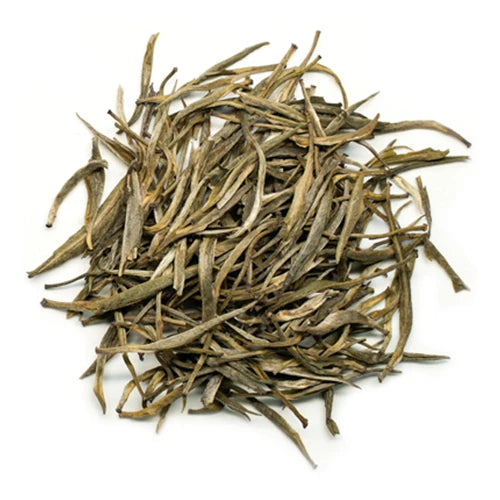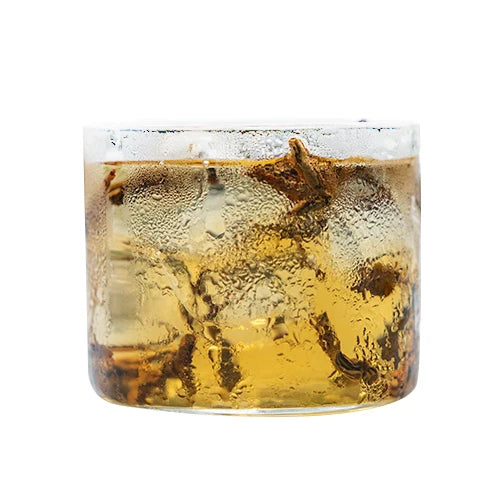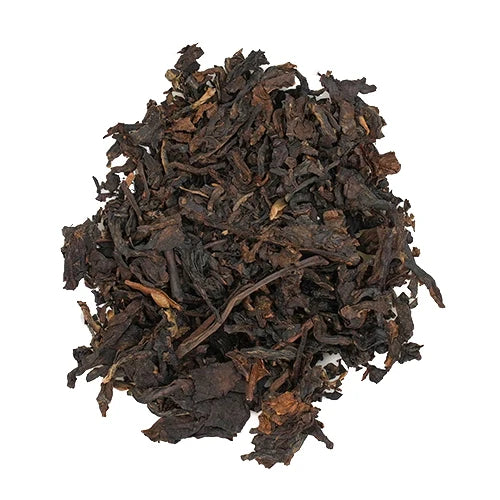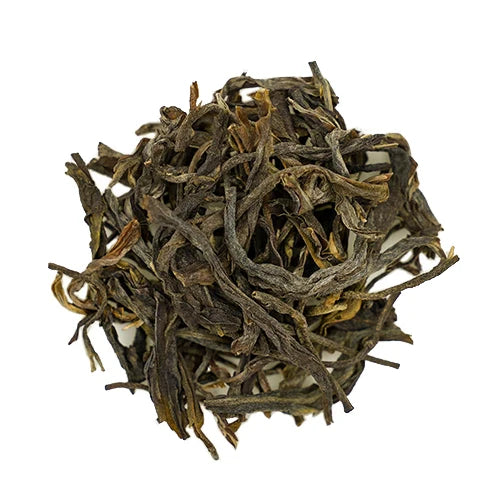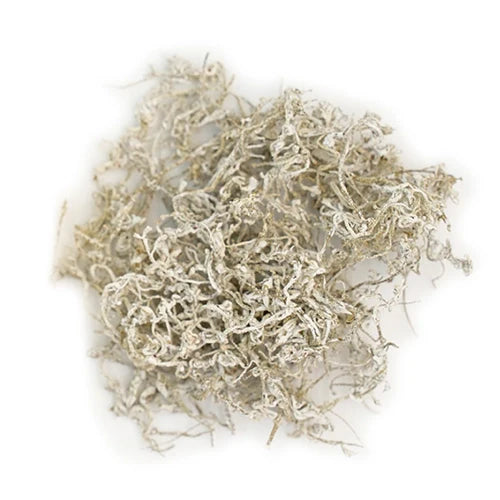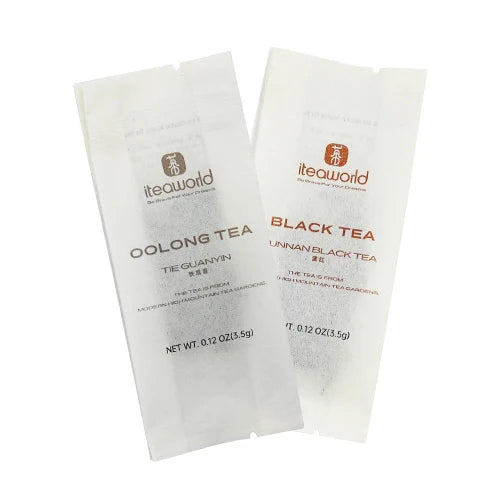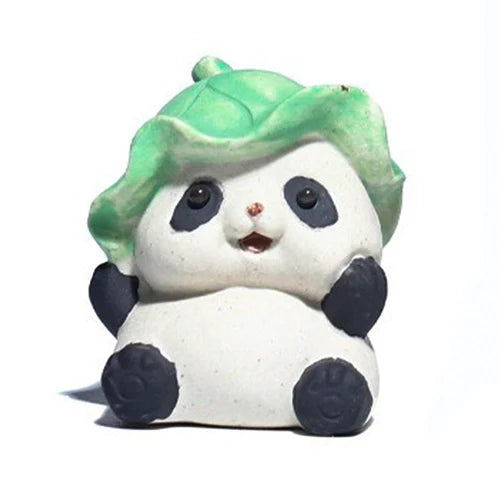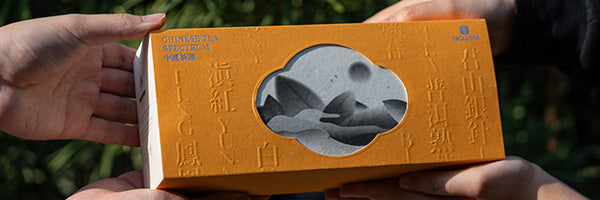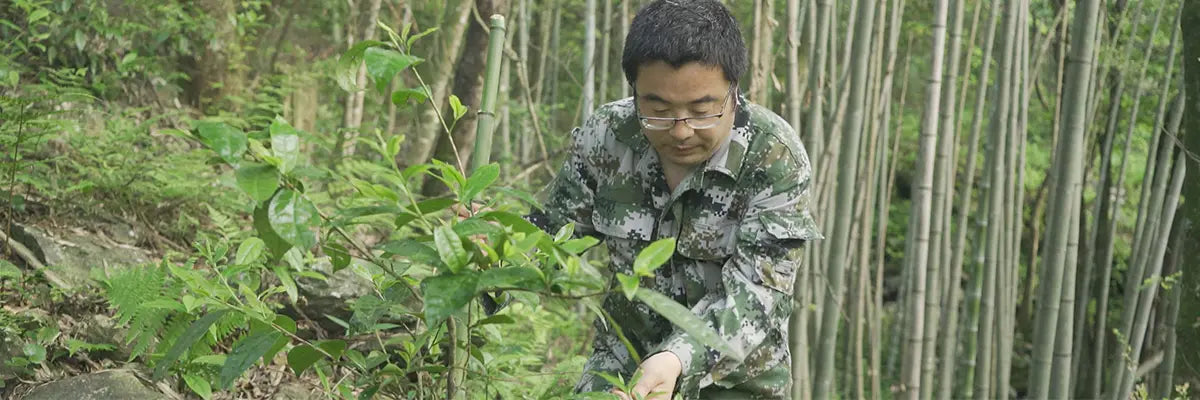I. Introduction
As tea enthusiasts explore the vast world of teas, Dahongpao tea emerges as a distinct and intriguing option. Known for its antioxidants and health benefits, this variety has gained popularity among tea connoisseurs worldwide. In this article, we will explore the origins of Dahongpao tea, its unique flavor profile, and the potential health advantages it offers.
II. Dahongpao Tea's Origin and Authenticity
Dahongpao tea's origin and authenticity are crucial factors that contribute to its exceptional quality and reputation. Let's explore the core producing area of Dahongpao and the significance of obtaining authentic Dahongpao tea.

A. The Core Producing Area of Dahongpao
Dahongpao tea finds its roots in the magnificent Wuyi Mountain in Fujian province, China. This region is renowned for its ideal tea-growing conditions, including the unique combination of soil, climate, and elevation. The mineral-rich soil, abundant rainfall, and mist-shrouded mountains create the perfect environment for the growth of tea plants.
The Wuyi Mountain region has been recognized as a UNESCO World Heritage site due to its breathtaking natural beauty and its historical and cultural importance in the world of tea. It is within this awe-inspiring landscape that Dahongpao tea thrives, absorbing the essence of its surroundings.
B. Authenticity and Importance of Obtaining Dahongpao Tea from the Source
Authenticity is paramount when it comes to experiencing the true essence of Dahongpao tea. The demand for this prized tea has led to the emergence of numerous imitations in the market. To ensure you are getting genuine Dahongpao tea, it is essential to source it directly from the core producing area or reliable tea merchants with a reputation for authenticity.
Obtaining Dahongpao tea from the source guarantees that you are getting the tea leaves harvested from the original tea bushes that have been nurtured for generations. The traditional cultivation methods and expertise of the local tea farmers contribute to the unique characteristics and flavor profile of Dahongpao tea.
Furthermore, purchasing directly from the core producing area supports the preservation of the tea's cultural heritage and the livelihood of the local tea communities. It allows you to connect with the rich history and traditions associated with Dahongpao tea, enhancing your overall tea-drinking experience.
When sourcing authentic Dahongpao tea, look for reputable tea vendors who prioritize transparency and provide detailed information about the tea's origin, cultivation, and processing methods. This ensures that you are not only enjoying a genuine cup of Dahongpao tea but also supporting the sustainability and preservation of this revered tea variety.
III. The Unique Yan Flavor of Dahongpao Tea
One of the distinguishing features of Dahongpao tea is its unique "Yan" flavor. Let's delve into the characteristics of this flavor profile and understand how the growing environment contributes to the distinct taste of Dahongpao tea.

A. Wuyi "Yan" Tea and its Characteristics
Dahongpao tea is a representative of Wuyi "Yan" tea, also known as Wuyi rock tea. The term "Yan" refers to the distinctive mineral-rich flavor and aroma that is characteristic of teas grown in the rocky cliffs of the Wuyi Mountain.
The "Yan" flavor of Dahongpao tea is often described as complex, mellow, and lingering. It carries a delightful combination of roasted notes, floral undertones, and a subtle sweetness. The flavor profile is a testament to the unique terroir of the Wuyi Mountain region, where the tea plants grow in the mineral-rich soil and absorb the essence of the surrounding rocks and vegetation.
B. Growing Environment and Rock Crevices' Influence on Dahongpao's "Yan" Flavor
Dahongpao tea trees grow in the narrow crevices of the rocky cliffs, where they are exposed to varying temperatures, sunlight, and moisture levels. The rocky terrain and limited access to nutrients create a challenging environment for the tea plants, forcing them to develop deep root systems in search of sustenance.
It is this struggle for survival and the interaction between the tea plant's roots and the minerals in the rocks that contribute to the unique "Yan" flavor of Dahongpao tea and other loose leaf oolong tea. The rocky environment imparts distinct mineral characteristics to the tea leaves, resulting in a flavor profile that is rich, robust, and often described as having a rocky or mineral undertone.
Additionally, the rocky cliffs provide natural shade and protection for the tea plants, allowing for a slow and steady growth process. This extended growing period allows the leaves to develop complex flavors and aromas, further enhancing the overall taste experience.
The combination of the Wuyi Mountain's unique climate, mineral-rich soil, and the tea plants' interaction with the rocky environment creates the perfect conditions for the development of the sought-after "Yan" flavor in Dahongpao tea.
IV. The Historical Significance of Dahongpao Tea

Legend has it that during the Ming Dynasty, a scholar fell ill while passing through Wuyi Mountain. Monks offered him tea leaves, which miraculously cured him. Grateful for his recovery, the scholar circled the tea bushes, shedding his red robe. These trees were then named "Big Red Robe" in honor of the scholar's gratitude. This historical tale adds a layer of mystique to Dahongpao tea and highlights its rich cultural heritage.
V. Dahongpao Tea's Preparation and Characteristics
The preparation of Dahongpao tea involves a slow roasting process under gentle heat. This meticulous technique contributes to the tea's distinctive flavor and aroma. Dahongpao tea exhibits a sweet aroma with a light smoky scent, making it a delight for the senses.
VI. Health Benefits of Dahongpao Tea
In addition to its captivating flavor and cultural significance, Dahongpao tea offers a range of potential health benefits. Let's explore the antioxidant properties of Dahongpao tea and the various ways it can contribute to overall well-being.
A. Antioxidant Properties and their Importance
Dahongpao tea is rich in antioxidants, which are compounds that help combat harmful free radicals in the body. Free radicals are unstable molecules that can cause oxidative stress and damage to cells, leading to various health issues. By neutralizing free radicals, antioxidants play a crucial role in maintaining cellular health and reducing the risk of chronic diseases.
The high levels of antioxidants found in Dahongpao tea can help protect the body against oxidative stress and support overall well-being. Regular consumption of Dahongpao tea can provide a natural source of antioxidants that contribute to a healthy lifestyle.
B. Potential Health Benefits of Dahongpao Tea
1. Boosting the Immune System:
The antioxidants present in Dahongpao tea help strengthen the immune system, promoting better defense against common infections and diseases. A robust immune system is essential for overall health and well-being.
2. Supporting Heart Health:
Research suggests that the antioxidants in Dahongpao tea may help improve heart health. They can potentially reduce the risk of cardiovascular diseases. Consuming the best loose leaf tea like Dahongpao can provide a rich source of immune-boosting antioxidants.
3. Promoting Digestive Health:
Dahongpao tea is often consumed after meals to aid digestion. It can help soothe the stomach, reduce bloating, and improve overall digestive function. It is also believed to have antimicrobial properties that may help combat harmful bacteria in the digestive system.
4. Enhancing Mental Well-being:
The act of enjoying a cup of Dahongpao tea can be a calming and soothing experience. It can help reduce stress, improve focus, and promote mental clarity. The presence of certain amino acids in the tea leaves may contribute to its relaxing effects.
While Dahongpao tea offers potential health benefits, it is important to remember that individual results may vary, and it should not be considered a substitute for medical advice or treatment. Incorporating Dahongpao tea into a balanced and healthy lifestyle can contribute to overall well-being, but it is always recommended to consult with a healthcare professional for personalized guidance.

VII. Discover iTeaworld: Where Tea Excellence Meets Health
As tea lovers seek out exceptional varieties like Dahongpao, iTeaworld emerges as a brand dedicated to delivering the finest teas to consumers. With a commitment to quality and a passion for preserving the rich heritage of teas, iTeaworld offers a range of meticulously selected teas, including the esteemed Dahongpao tea.
Whether you're a tea connoisseur or new to the world of teas, iTeaworld invites you to embark on a journey of taste and wellness. Explore our collection of teas, including the captivating Dahongpao tea, and other loose leaf tea, and experience the harmony of flavors and potential health advantages that our teas have to offer.
In a world where tea excellence meets health, iTeaworld is your trusted companion. We invite you to discover the art of tea with us and embrace the moments of tranquility and rejuvenation that come with every sip.
VIII.What kind of people are not suitable to drink Dahongpao?
As a well-known oolong tea, Dahongpao is widely considered to be safe for most people to drink, but there are still some people in special circumstances who may may not be suitable or need to be aware of drinking Dahongpao tea:
Pregnant and lactating women: Pregnant and lactating women are advised to drink Dahongpao tea with caution. This is because Dahongpao tea contains high levels of caffeine. Caffeine intake may have an effect on the fetus or baby, so it is recommended to limit the intake of Dahongpao tea.
People who are sensitive to caffeine: If you are more sensitive to caffeine, it is recommended to limit your intake of Dahongpao tea. This may cause you to experience some uncomfortable symptoms such as headaches, anxiety, insomnia, etc.
Specific Health Problems: Some health problems may be affected by caffeine, such as heart arrhythmia and high blood pressure. If these health problems exist, it is best to consult your doctor before consuming tea.
Sleep Problems: If you suffer from frequent insomnia or have sleep problems, then it is highly recommended that you do not drink Dahongpao tea at night. This is because the caffeine in Dahongpao tea is stimulating and energizing, which can aggravate your sleep problems.
Digestive Problems: Some people may be sensitive to the acidic stimulation of the tea, which may cause stomach upset or aggravate problems such as acid reflux.
Ⅸ.Caffeine Content of Dahongpao
The caffeine content of each brand of Dahongpao is different, you can refer to the product description for details. Generally speaking, the caffeine content of Dahongpao is in the range of 50-70 mg/235 ml, which is between green tea and black tea.
Conclusion
Dahongpao tea, with its antioxidants and health benefits, stands out as a prized variety in the world of tea. Its unique flavor profile, derived from the rock crevices of the Wuyi Mountains, captures the essence of its origin. The historical significance and cultural heritage associated with Dahongpao tea further add to its allure. As tea enthusiasts continue to explore the vast array of options, Dahongpao tea remains a captivating choice that not only pleases the palate but also offers potential health advantages.
Embrace the world of tea excellence and wellness with iTeaworld, where our commitment to quality and passion for teas meet. Discover our meticulously selected teas, including the revered Dahongpao tea, and immerse yourself in the delightful flavors and potential health benefits that our teas bring.
Let iTeaworld be your trusted companion on your tea journey, as you indulge in moments of tranquility and embrace the harmony of taste and well-being.





